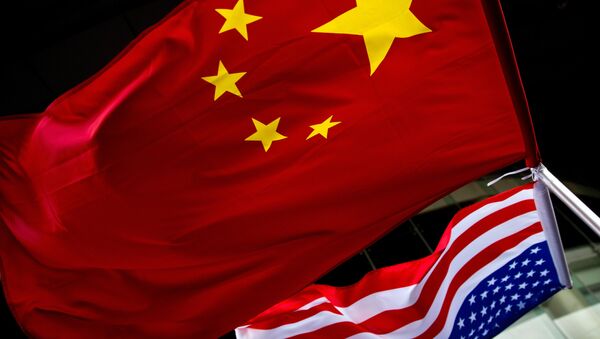Beijing's embassy in Washington has protested a decision by the US to impose visa restrictions on senior Chinese officials, claiming that the move constitutes a violation of "the basic norms governing international relations."
The US move "seriously violates the basic norms governing international relations, interferes in China's internal affairs and undermines China's interests. China deplores and firmly opposes that," an embassy spokesperson said, cited by Reuters.
The spokesperson elaborated that "Xinjiang does not have the so-called human rights issue claimed by the US," and suggested that "the accusations by the US side are merely made-up pretexts for its interference."
On Tuesday, US Secretary of State Mike Pompeo said that Washington imposed the visa restrictions "on Chinese government and Communist Party officials who are believed to be responsible for, or complicit in, the detention or abuse of Uighurs, Kazakhs, or other members of Muslim minority groups in Xinjiang."
Pompeo accused Beijing of leading a "campaign to erase religion and culture in Xinjiang."
On Monday, the US added 28 Chinese security agencies and companies said to be involved in the "crackdown" on Muslims in the Xinjiang province to the list restricting licenses needed to trade with the United States.
In an August 2018 report, UN experts on the elimination of racial discrimination said that up to 1 million ethnic Uyghurs were being held in so-called re-education camps. Beijing denied the existence of the camps, noting that the claims have not been substantiated while asserting that the facilities are vocational colleges set up as part of counterterrorist efforts in the region.
The historically Muslim Xinjiang region was conquered by the Qing Empire in the 1750s, when Chinese troops destroyed the Dzungar Khanate. The region went through several bloody revolts and proclaimed independence as the East Turkistan Republic following the 1911-1912 Xinhai Revolution that toppled the Qing Dynasty. In 1949, the People’s Republic of China seized control of Xinjiang, and the region continues to be mired in a simmering conflict.




